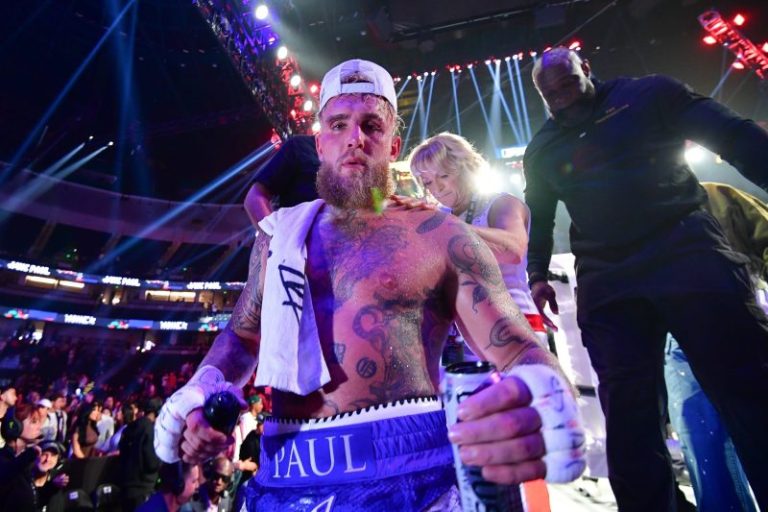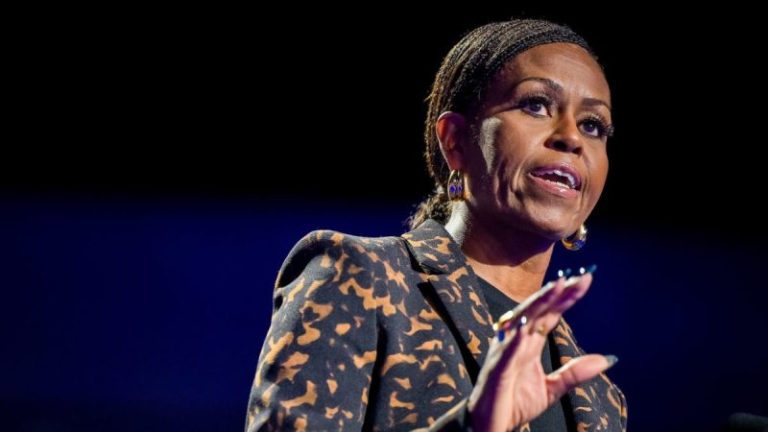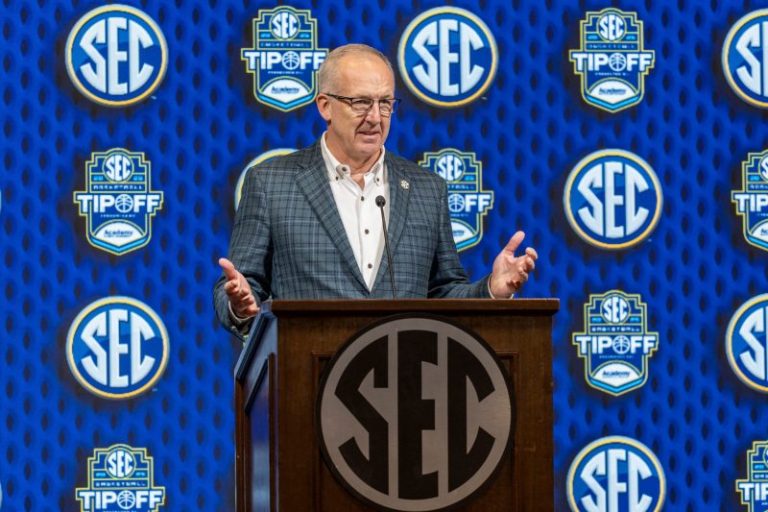LAKE PLACID, NY — There were plenty of shining moments at 2025 Skate America.
The second day of competition on Saturday, Nov. 15 was a loaded one, with every skater on the ice at the famous Herb Brooks Arena in Lake Placid, home of the 1980 Winter Olympics and the ‘Miracle on Ice.’
With all four disciplines in action, Saturday showcased all the Olympic hopefuls, including those from the United States. It starts with with reigning world champion Alysa Liu, who had an excellent performance in the short program. The same could be said for the decorated ice dancing duo of Madison Chock and Evan Bates, showed out big time. Plus, the beloved Jason Brown showed promise in his first Grand Prix event of the season.
There are plenty of takeaways from day two of Skate America, and USA TODAY Sports has the scores and highlights from Lake Placid:
Alysa Liu maintains hot run
Even though the tears came out as she wrapped up her short program, Liu was completely OK with it. In her eyes, it actually felt good.
‘I don’t cry that much, so I feel like lucky to be able to cry over something,’ she said.
It was a performance worth crying over, as Liu delivered an emotional performance. The skater wants to feel connected to her music, and ‘Promise’ by Laufey executed it perfectly. The crowd felt it with a standing ovation, by far the loudest one of the women’s short program.
Liu received a 73.73, which put her in second place behind Japan’s Rinka Watanabe with a 74.35. The 20-year-old mentioned her loop could have been better, but she was overall happy with the skate.
Many of the American crowd hoped to see Liu in first place − especially after how she did in Cup of China − but she has well-positioned herself to finish on top with a strong free skate.
Another name to watch is American Starr Andrews. Her Beyonce medley was outstanding and had her around the top three for much of the night. She currently sits in sixth with a score of 64.38.
Madison Chock, Evan Bates in a class of their own
While the ice dance still has the free dance to go, first place is all but wrapped up.
The couple of Chock and Bates dominated in the rhythm dance, putting up a whopping 84.77, more than seven points than the second place duo of Marjorie Lajoie and Zachary Lagha of Canada. They performed a Lenny Kravitz medley that rocked from start to finish. It only made sense they were the last competitors to take the ice, truly saving the best for the final part of the show.
It continues what is a dominant run, building off the first place finish at Cup of China three weeks ago. The three-time reigning world champions and four-time reigning U.S. title holders have accomplished nearly everything in the Grand Prix, and they are well positioned to win Skate America for the fifth time, which would tie the record set by Tanith Belbin and Benjamin Agosto.
“We’re really looking to put our best feet forward and perform our best,” Chock said. “We learn and grow from competition to competition, and think we’re in a really good place heading into the next event.”
Jason Brown has promising showing
Everyone was excited to fall back in love with Brown. The question was whether it was going to come with a podium finish.
Brown just missed out on it, but there’s still plenty to be happy about for the 30-year-old in his first Grand Prix event of the season. While his iconic river dance brought the crowd out of their seats in night one of the competition, he was in fifth place in the men’s standings, needing a big showing in the free skate to make it to at least third.
While some other skaters had slip ups, Brown didn’t on Saturday night, delivering a crisp performance that again ended with a rousing ovation from the fans. As the end of the night neared, it felt like Brown could medal, but he finished fourth, just under six points behind third.
It’s not the showing Brown wanted, but the nerves are out. Skate America gave him a good start for the season as he will be one of several American vying to punch their ticket to the Winter Olympics.
‘I feel like my confidence has grown,’ Brown said.
Men’s Skate America 2025 results
Kevin Aymoz of France became the star of the weekend, and he ends it by winning his first Grand Prix event in Skate America. He finished second in the short program and second in free skate, but he didn’t falter while other skaters around him stumbled.
In second place was Mikhail Shaidorov of Kazakhstan with 251.09 points, and Kazuki Tomono finished in third with a score of 245.57. Tomono was the top scorer in the short program, but two hard falls proved to be too much for him to maintain his spot.
American and fan favorite Jason Brown just missed out on the podium despite a strong free skate. At fourth place, he was just under six points away from a third-place finish.
Men’s total, free skate standings
Kevin Aymoz, France: 253.53 (159.97 free skate)
Mikhail Shaidorov, Kazakhstan: 251.09 (161.42 free skate)
Kazuki Tomono, Japan: 245.57 (149.80 free skate)
Jason Brown, United States: 239.59 (156.90 free skate)
Daniel Grassl, Italy: 236.44 (152.76 free skate)
Vladimir Litvinstsev, Azerbaijan: 231.84 (155.97 free skate)
Nikolaj Memola, Italy: 231.02 (155.41 free skate)
Tatsuya Tsuboi, Japan: 228.03 (150.35 free skate)
Liam Kapeikis, United States: 214.29 (140.01 free skate)
Luc Economides, France: 201.36 (129.38 free skate)
Daiwei Dai, China: 190.90 (125.92 free skate)
Corey Circelli, Italy: 190.55 (128.56 free skate)
Kazuki Tomono free skate
It was a rough start for Tomono with two falls, and it turns out to be costly. He finishes the night with a 149.80 score and he misses out on the Skate America title.
Kevin Aymoz free skate
After an emotional short program, Aymoz comes back on the ice and delivers another great showing, capped off with a pose right in front of the judges. Aymoz earns a score of 159.97 to guarantee himself a spot on the podium.
Mikhail Shaidorov free skate
The third-place finisher in the short program from Kazakhstan, Shaidorov took two rough falls in his program. Still, he gets a great score of 161.42.
Daniel Grassl free skate
A few hiccups for Grassl in his free skate, and he gets a 152.76 from the judges.
Jason Brown free skate
The fan-favorite delivers an emotional showing that ends with another standing ovation for the skater. Brown gets a 156.90.
Tatsuya Tsuboi free skate
Tsuboi opens up the second half of the men’s free skate with a powerful program 150.35
Vladimir Litvintsev free skate
The skater from Azerbaijan starts off pretending to smoke a cigarette and executes a performance that ends with a Joker tribute that entertains the crowd. Litvintsev earns a 155.97 from the judges.
Nikolaj Memola free skate
Memola overcomes some early stumbles for a solid finish, getting a score of 155.41.
Liam Kapeikis free skate
Kapeikis has great execution, earning a 140.01 in the free skate.
Luc Economides free skate
The scores continue to go up with Economides nabbing a 129.38 score.
Daiwei Dai free skate
Dai gets a 125.92 on his free skate.
Corey Circelli free skate
Circelli opens the men’s free skate with a score of 128.56.
Men’s free skate order
Corey Circelli, Italy
Daiwei Dai, China
Luc Economides, France
Liam Kapeikis, United States
Nikolaj Memola, Italy
Vladimir Litvintsev, Azerbaijan
Tatsuya Tsuboi, Japan
Jason Brown, United States
Daniel Grassl, Italy
Mikhail Shaidorov, Kazakhstan
Kevin Aymoz, France
Kazuki Tomono, Japan
Women’s short program final standings
Rinka Watanabe, Japan: 74.35
Alysa Liu, United States: 73.73
Lara Naki Gutmann, Italy: 69.69
Anastasiia Gubanova, Georgia: 68.07
Chaeyeon Kim, Korea: 67.28
Starr Andrews, United States: 64.38
Haein Lee, Korea: 64.06
Wakaba Higuchi, Japan: 60.12
Lea Serna, France: 59.25
Ekaterina Kurakova, Poland: 56.05
Hana Yoshida, Japan: 57.22
Josephine Lee, United States: 54.24
Chaeyeon Kim short program
The final skater in the women’s short program gets herself in the top five with a 67.28.
Anastasiia Gubanova short program
The skater from Georgia has a solid showing. The judges give her a score of 68.07.
Alysa Liu short program
Liu delivers an emotional short program that gets the crowd on their feet. She gets a score of 73.73.
Hana Yoshida short program
Performing a ‘Kill Bill’ inspired routine, Yoshida slices through the ice. She receives a score of 57.22.
Lara Naki Gutmann short program
Gutmann delivered a beautiful performance and catapults up the standings with a score of 69.69.
Rinka Watanabe short program
Coming off a third place finish at Cup of China, Watanabe puts on another great routine. She gets a whopping 74.35, a season-best for Watanabe.
Haein Lee short program
Lee closes out the first group with a strong showing, earning a score of 64.06.
Ekaterina Kurakova short program
A passionate performance, Kurakova earns a season-best 56.05.
Wakaba Higuchi short program
The 2024 Skate America winner has a minor slip-up but still puts up a season-best score of 60.12.
Lea Serna short program
The French skater puts up a clean performance, gets a 59.25.
Starr Andrews short program
With a Beyonce medley, Andrews executes and gets emotional after her performance.
Andrews receives 64.38, a season-best.
Josephine Lee short program
Lee has two early stumbles, including one fall, but recovers to close out her performance.
She finishes with a score of 54.24.
Women’s short program order
Josephine Lee, United States
Starr Andrews, United States
Lea Serna, France
Wakaba Higuchi, Japan
Ekaterina Kurakova, Poland
Haein Lee, Korea
Rinka Watanabe, Japan
Lara Naki Gutmann, Italy
Hana Yoshida, Japan
Alysa Liu, United States
Anastasiia Gubanova, Georgia
Chaeyeon Kim, Korea
Pairs results
Riku Miura and Ryuichi Kihara (Japan): 215.99
Anastasiia Metelkina and Luka Berulava (Georgia): 195.73
Kelly Ann Laurin and Loucas Ethier (Canada): 182.87
Emily Chan and Spencer Akira Howe (United States): 180.02
Annika Hocke and Robert Kunkel (Germany): 176.56
Karina Akopova and Nikita Rakhmanin (Armenia): 170.98
Valentina Plazas and Maximiliano Fernandez (United States): 163.26
Olivia Flores and Luke Wang (United States): 161.44
Madison Chock, Evan Bates lead rhythm dance
The three-time reigning world champions shine on the ice to their Lenny Kravitz rhythm dance program. Chock and Bates received a score of 84.77 for a comfortable first place finish, with Marjorie Lajoie and Zachary Lagha of Canada scoring 77.42.
“We definitely made a lot of improvements,” Bates told USA TODAY Sports. “We felt good about it. There’s obviously a lot of room for growth and improvement as the season goes on with both programs, but we’re happy with just in two weeks, how much progress we can make.”
Rhythm dance results
Madison Chock and Evan Bates (United States): 84.77
Marjorie Lajoie and Zachary Lagha (Canada): 77.42
Evgeniia Lopareva and Geoffrey Brissaud (France): 76.72
Loicia Demougeot and Theo le Mercier (France): 73.47
Christina Carreira and Anthony Ponomarenko (United States): 72.74
Katerina Mrazkova and Daniel Mrazek (Czech Republic): 72.73
Oona Brown and Gage Brown (United States): 70.25
Phebe Bekker and James Hernandez (Great Britain): 66.81
Alicia Fabbri and Paul Ayer (Canada): 65.37
Celina Fradji and Jean-Hans Fourneaux (France): 56.21
Skate America schedule
Saturday, Nov. 15 (2 p.m. ET)
Rhythm dance
Pairs’ free skate
Women’s short program
Men’s free skate
Sunday, Nov. 16 (2:15 p.m. ET)
Free dance
Women’s free skate
Stream Skate America on Peacock
How to watch Skate America: TV, streaming
Skate America will broadcast on E! Network on Saturday, Nov. 15. It will air on NBC on Sunday, Nov. 16.
All of Skate America will stream on Peacock.
Who is competing in 2025 Skate America?
Several of the international stars in Lake Placid are U.S. skaters who could compete in the 2026 Winter Olympics, including:
Alysa Liu
Jason Brown
Madison Chock and Evan Bates
Skate America US skater times
All times Eastern
Ice dance rhythm dance
Oona Brown and Gage Brown: 2:22 p.m.
Christina Carreira and Anthony Ponomarenko: 3:01 p.m.
Madison Chock and Evan Bates: 3:14 p.m.
Pairs’ free skate
Olivia Flores and Luke Wang: 3:46 p.m.
Valentina Plazas and Maximiliano Fernandez: 3:54 p.m.
Emily Chan and Spencer Akira Howe: 4:09 p.m.
Women’s short program
Josephine Lee: 6:25 p.m.
Starr Andrews: 6:31 p.m.
Alysa Liu: 7:28 p.m.
Men’s free skate
Liam Kapeikis: 8:35 p.m.
Jason Brown: 9:13 p.m.
Men’s short program results
From Friday, Nov. 14.
Kazuki Tomono (Japan): 95.77
Kevin Aymoz (France): 93.56
Mikhali Shaidorov (Kazakhstan): 89.67
Daniel Grassl (Italy): 83.68
Jason Brown (United States): 82.69
Tatsuya Tsuboi (Japan): 77.68
Vladimir Litvintsev (Azerbaijan): 75.87
Nikolaj Memola (Italy): 75.61
Liam Kapeikis (United States): 74.28
Luc Economides (France): 71.98
Daiwei Dai (China): 64.98
Corey Circelli (Italy): 61.99
This post appeared first on USA TODAY










